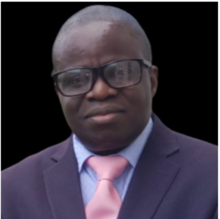CS Colloquium
Timothy Oladunni, Morgan State University and Yale University
Title: More Isn’t Always Better: Investigating Redundancy and Complementarity in Multimodal ECG Deep Learning
Abstract:
Multimodal deep learning has shown promise in electrocardiogram (ECG) classification by integrating diverse data representations to improve prediction. However, the assumption that adding more modalities always enhances performance is flawed. As architecture complexity increases with the dimensionality of fused domains, performance gains diminish, accompanied by a heightened risk of overfitting. I argue that optimal model performance is achieved when each domain contributes complementary, non-redundant information. In this talk, I will investigate the performance dynamics of hybrid multimodal deep learning architectures in ECG signal classification using a combination of 1D-CNN, 2D-CNN, and Transformer models across time, frequency, and time-frequency domains. Empirical results show that augmenting a 1D-2D CNN fusion model with a Transformer component leads to negligible performance improvements despite the increased model complexity. This finding is further validated through statistical analysis using Bayesian inference, bootstrapping, correlation techniques, and ablation studies. The hypothesis’s correctness is established through mathematical proofs, specifically Direct Proof, Indirect Proof, Proof by Contradiction, and Inductive Proof. This presentation will provide critical insights into optimizing hybrid multimodal deep learning models, stressing the importance of balancing feature diversity with architectural efficiency. I will also introduce a novel theory of Complementary Feature Domains, which is key to achieving optimal performance in multimodal deep learning systems.
Bio:
Timothy Oladunni is a distinguished computer scientist, professor, and machine learning researcher specializing in biomedical signal processing, natural language processing, deep learning, and multimodal AI architectures. With a strong background in electrical engineering, Timothy has dedicated his research to advancing ECG signal analysis, natural language processing, and pattern recognition. His recent work focuses on multimodal deep learning architectures, particularly the trade-off between model complexity and performance in biomedical signal classification. By integrating time, frequency, and time-frequency domain features, he explores novel ways to optimize CNN-Transformer-based models for ECG analysis, ensuring robust and generalizable AI-driven diagnostic systems.
As a professor, Timothy is passionate about mentoring the next generation of data scientists and AI researchers. He is an assistant professor in the Department of Computer Science at Morgan State University in Baltimore, MD, USA, and a visiting assistant professor at the Computer Science Department of Yale University in New Haven, CT, USA.
Website: https://www.timothyoladunni.com/
